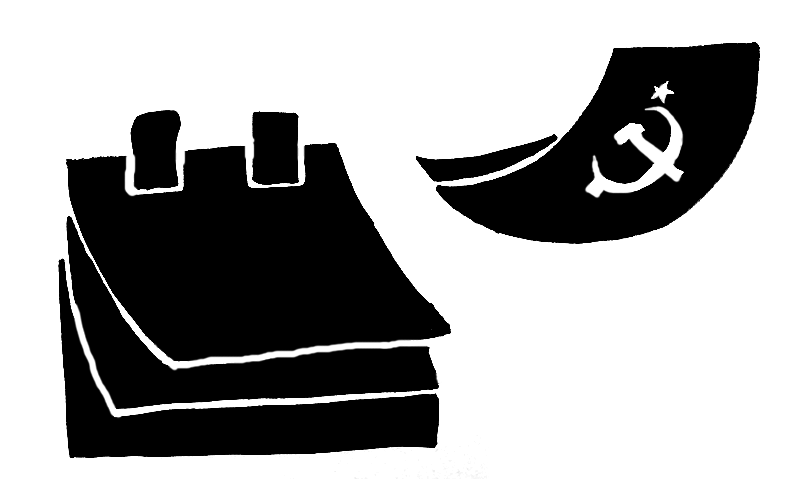Until January 27, 1973, all young men were required to register for the Selective Service and were eligible to be drafted into military service. A month after I had turned 18 in 1955, I received my letter telling me to report for the mandatory Selective Service physical and registration . . . After my physical examination, I stood totally naked in a line with 24 other young men on the third floor of my Selective Service Center, when a sergeant with a clipboard approached and asked several people to step forward. My name was the first he called. There were other names, but I paid no attention after he called mine.
I had been poked and prodded. I had peed in a cup, bent and spread my cheeks, and had my testicles held while I coughed. I had no doubt about the physical exam. I was on the University of Illinois wrestling team, lifted weights every day, and was in excellent physical condition. I looked forward to my second year at the Chicago’s Navy Pier Campus of the University.
I stepped out from the group. “What is this about?” I asked.
“Get dressed and report to Examination Room three on the first floor.”
I understood how the military worked, so I did as I was instructed. After four years of high school Reserve Officers Training Corp training and summer camps, I had graduated with an army provisional rank of Second Lieutenant.
I went to the dressing room, put on my t-shirt, Levis, and penny loafers, thinking this might be to effectuate my brevet commission. A career in the army would not be bad. My high school German teacher was retired military. He had interrogated German POWs during WWII.
I went down the metal-tipped wooden stairs and entered Examination Room three. Upon entering, I was told to sit on a wooden folding chair in front of a gray metal desk, behind which sat an army captain, hands folded on the desk. The sergeant with the clipboard stood stone-faced to the left of the desk. A corporal sat at a small portable table to the right of the desk. He faced an Underwood typewriter and a stack of plain paper. He inserted a sheet of paper into the typewriter and turned the roller with ominous clicks. With hands expectantly on the keys, he looked up at the captain.
Then the questions started. Sergeant Clipboard asked me if I understood that all my responses would be documented. He asked me to state my name and address, where I attended high school and whether or not I was enrolled in the University of Illinois, Navy Pier Campus. I answered affirmatively and the typist recorded my words almost as fast as I spoke them. His speed was impressive. For my college papers, I used the “hunt and peck” system on an old Smith Corona.
The questions, which seemed banal and routine, continued for almost half an hour. I was a bit surprised because they already had all this information. Then Sergeant Clipboard asked a question that almost knocked me off my seat.
“When did you become a member of the Communist Party?”
I am sure my eyes increased in size. I know my mouth dropped open. I stammered, “What? I’m not a member of the Communist Party.”
He looked at his clipboard and then glared at me. “Your name appears on a roster of members of the Young Communist League of Chicago.”
Thoughts flew through my head like a hundred fast-forward still pictures. I had watched the House Committee on Un-American Activities on television questioning and badgering people. I was familiar with the alleged communist influence in the Hollywood motion picture industry. I had read the newspaper stories about a freshman congressman named Richard Nixon who said people lied when they denied the charge that they were communists.
My college major was literature and writing. I had intended to earn a PhD and become a teacher. Teaching was part of my Jewish DNA.
The room turned cold and my right foot started bouncing uncontrollably. I cringed in my seat. I could not control my trembling. My goal of becoming a teacher was turning into mist and evaporating. My heart beat so hard I was sure they could see it pounding through my t-shirt.
I was afraid they were going to drag me in front of a panel headed by Wisconsin Senator Joseph McCarthy, who was leading a crusade against so-called communist subversives. A few years earlier, during the national fanatic anti-communist fervor, McCarthy had publicly declared that he possessed a list of more than 200 people in the State Department who were secret communist agitators. McCarthy’s government committee “investigated” them. His “witch-hunts” became known as McCarthyism because the people on his list turned out to be his political opponents and not communists at all.
Given this atmosphere of communist hysteria, I asked how they had come upon my name on the roster of the Young Communist League. When they showed me a copy of the roster and I saw the name of the youth leader, it became clear. I tried to explain.
During my senior year in high school, I had been president of a high school club interested in history and politics. Our advisor had given me the name of an American who had traveled in Russia and was willing to come and talk about his experiences. I invited him to make a presentation to our group. He was friendly, his talk was interesting and informative. But I had no idea that he was a member of the American Communist Party. Apparently he had listed me as his contact.
The questions came as fast as Sergeant Clipboard could ask them. “Where did you meet him? How long have you known him? Why did you contact him? Who told you about him?”
The typist recorded every answer as fast as I could respond. After about two hours of questioning, I was told I could leave but my Selective Service classification could not be made until a thorough investigation had been completed.
I was both relieved and depressed. Adding to my fears was the knowledge that there were communists in my family. My mother’s sister and her family had emigrated from England to Canada but were denied legal entry into the United States because they were communists. They entered illegally and one cousin lived with my family and was able to procure work using my father’s social security number.
There also was the death of my great-uncle who had emigrated from Hungary at the end of the war and had joined the Chicago Communist Party. He had renounced his membership years before he died but at his burial, a fist fight broke out between his 25-year-old son and an organizer of the Chicago Communist Party who wanted to speak at my great-uncle’s funeral.
With my family history, my supposed career as a teacher had ended before it started. I decided not to return to college and to get a job where my family’s past would not be an issue. My father wanted me to join the local sign and pictorial painters’ union and join him as a sign painter. I had worked with him during school vacations but I hated working outdoors in the heat of summer and the cold of spring and fall.
I left that interview, went home, and resigned myself to my fate. My parents urged me to continue my education, but the following week, I got a job at the First National Bank of Chicago. I began each day at 6 a.m. by opening mail and distributing letters to the appropriate departments. In the afternoons I worked as a courier carrying cash and negotiable bonds, always accompanied by an armed guard. On one of my trips, I asked the guard why he walked behind me.
His answer took me by surprise. “I’m protecting the money. Did you think I was protecting you?”
Two weeks after my military interrogation, I got a call from my best friend. “Mel, what the hell is going on? I just had a visit from the FBI asking about you. What the hell did you do, rob a bank?”
 When I explained that it was about the speaker from Russia who turned out to be a communist, his response was, “Man, you’re in deep shit. What’re you going to do?”
When I explained that it was about the speaker from Russia who turned out to be a communist, his response was, “Man, you’re in deep shit. What’re you going to do?”
That was a question to which I had no answer.
Over the next few months, I got the same kind of calls from other friends, from my high school teachers, and even from a few university acquaintances who I barely knew. After I explained what had happened, my few close friends were satisfied but skeptical. Some not-so-close friends stopped speaking to me and wanted have nothing more to do with me.
So I waited for the letter that did not come. Week after week I watched for the mail, wondering what my life would be like with this horror hanging over my head.
My job at the bank ended less than a month after it started. I was called into the personnel office and told my service was no longer required. When I asked if my work had been unsatisfactory, the manager told me his decision had to do with my political affiliation. I asked him what that meant and he said he was not at liberty to tell me. I had no idea how the bank found out I was being investigated.
I began to wonder what kind of job I could get. My job at the bank was menial labor. If I could not keep a laboring job, what kind of job could I get?
A factory in my area advertised for someone who could run a drill press. I had operated a drill press in my high school shop class, so I said I had experience. I ran a drill press eight hours a day, drilling holes in strips of aluminum and then tapping the same holes, cutting screw threads in each hole. Although I made a decent wage with overtime, I soon realized that boring unskilled work was not a career and definitely not how I wanted to spend the rest of my life.
I quit after a year at the factory and enrolled at Northern Illinois State College in DeKalb, Illinois, which became Northern Illinois University in my senior year. I had always enjoyed reading and writing, so I majored in English and psychology. I knew there were a few companies that hired college graduates regardless of their majors and without family background checks.
Every few days I called home from college to be told there was no letter from the government. I began to understand the despair of a man on death row waiting to hear if his sentence had been commuted. I worked construction jobs during the summers. Another year went by, and still no letter.
For two years I waited. For two years the government investigated me, apparently considering me a communist during the entire time. This was a case of being guilty until proved innocent. I contemplated moving to Canada and changing my name. Every month for two long years I expected to be dragged into court and denounced to McCarthy’s committee as a communist.
 Finally, as I was about to start my senior year, two excruciating, anxious years after my military interrogation, I received a letter from the Selective Service stating I had been cleared and classified as 1A. I was relieved to become eligible to be drafted, but I became fearful that I would be sent to Vietnam. The U.S. involvement had escalated in 1960 and troop levels were rising.
Finally, as I was about to start my senior year, two excruciating, anxious years after my military interrogation, I received a letter from the Selective Service stating I had been cleared and classified as 1A. I was relieved to become eligible to be drafted, but I became fearful that I would be sent to Vietnam. The U.S. involvement had escalated in 1960 and troop levels were rising.
Just before I graduated from Northern Illinois University, I married a woman whom I had met at a friend’s house in Chicago. We had been dating for almost a year. She worked in the city, and we saw each other when I came home from DeKalb every weekend. Although she had met my parents and one of my aunts, I told her nothing about the communists in my family. Her family supported Kennedy and Johnson and were fervidly anti-communist.
After I graduated in 1961, I accepted a teaching job with the Los Angeles City School District. I wanted to get as far away from Chicago as I could. One of my close high school friends had moved to Hollywood and had become associated with the film industry. He knew my story and offered my wife and me a place to stay until we could find permanent lodgings.
In 1964, as a teacher with a wife and two children, I wrote to Selective Service Local Board No. 19 requesting re-classification. Their response, in a letter dated 24 April 1964, stated my request would be reviewed and they would contact me.
I never shared this anxious part of my life with my children. They were too young at the time to understand the political turbulence of those years. Now that they are grown and have some knowledge of history, I hope they will read this and learn how this experience helped to make me the kind of person I became.
In June 1965, the wooden building in Chicago housing the Selective Service Local Board No. 19 mysteriously burned to the ground along with all records. I still have their letter and await their response. •
All images created by Isabella Akhtarshenas.







